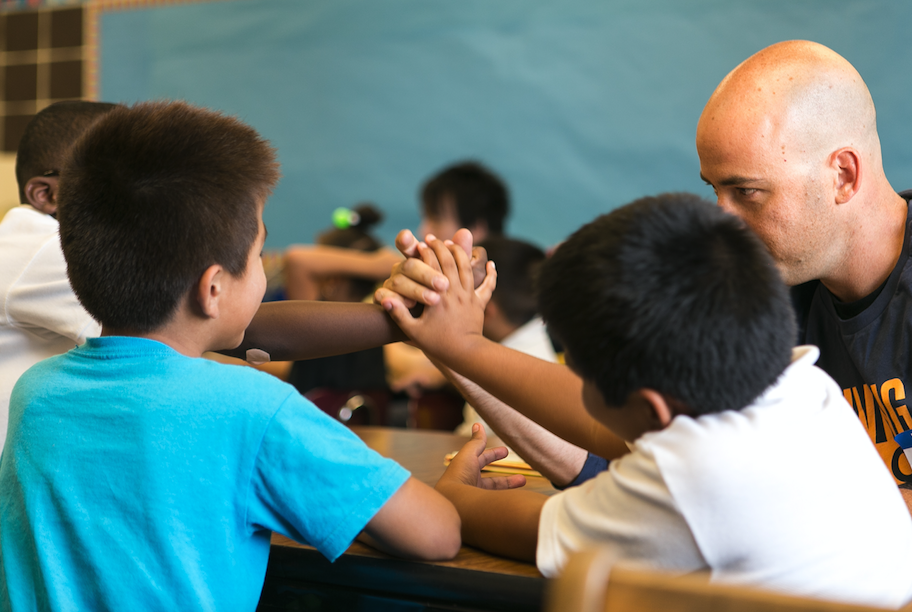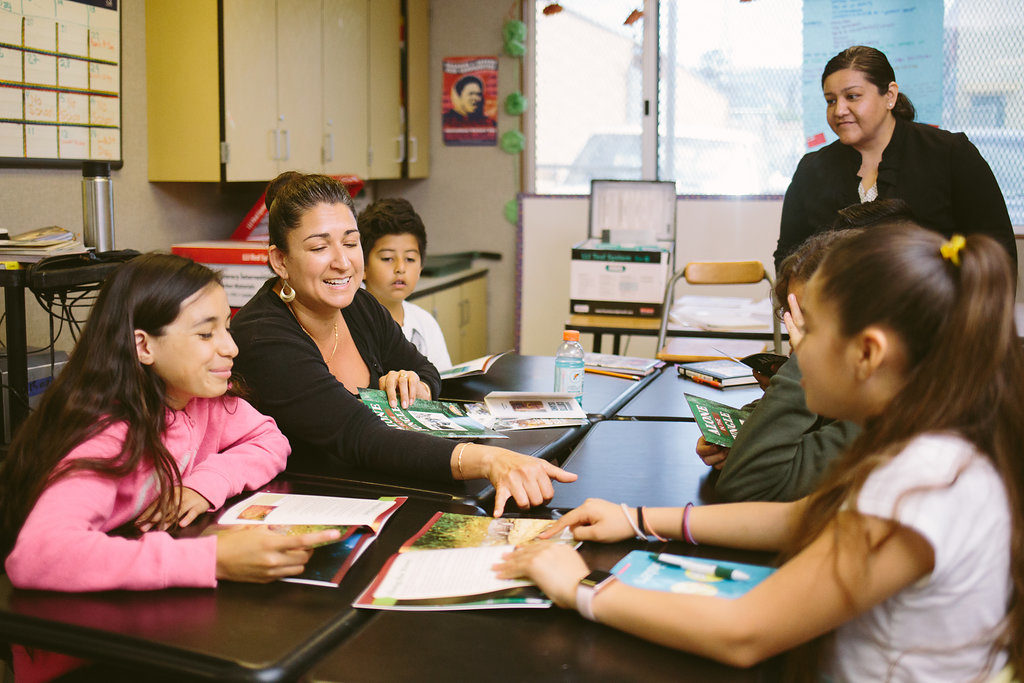Blog
Will You Be Our (social-emotional learning) Valentine?
Share
by Rebecca Schmidt, Program Manager
What’s love got to do with it (in education)?
As Valentine’s Day approaches, it’s a natural time to reflect on love. Here at the OLC we are leaving the romantic love to Hallmark, candle-lit restaurants, and heart-shaped candy. Instead, we are reflecting on loving and caring relationships in education settings – classrooms, programs, community centers, anywhere that serves students – and the importance of those relationships in developing critical social-emotional skills, attitudes, and abilities in students, especially during turbulent times.
With headlines of every kind splashing across the national news, and a looming teacher strike and school closures right here in Oakland, we are surrounded by uncertainty and stress. There’s no doubt that our students are picking up on these feeling and are feeling them too. It can be awfully difficult to support students (and adults!) right now, and even more difficult to keep students learning and productive. There may be an instinct to ignore the news and double down on academics, pushing feelings and chaos out of the classroom. We think this might help keep kids learning and focused – but that instinct is counterproductive.
According to the Aspen Institute’s recent report A Nation at Hope, “Children learn best when we treat them as human beings, with social and emotional as well as academic needs… To reach a child’s mind, we must be concerned for the whole person.” The report outlines various skills, attitudes, and values that children need to develop in order to be successful: “paying attention, setting goals, collaboration, and planning for the future … internal motivation, perseverance … responsibility, honesty, and integrity.” Helping children develop these skills, attitudes, and abilities is not a new challenge in education. Teachers, families, schools, and community partners have been doing this for a long time!

Why is it now such a hot topic?
In most education settings today, we’ve gotten really good at measuring what we think matters in learning: attendance, test scores, suspension rates, minutes of silent reading, multiplication tables mastered, even mile-run times. Measuring high quality relationships and social emotional learning is far trickier. However, recent research has shown the importance of caring relationships in education in and out of the classroom; before, during and after school; throughout the summer, and beyond. Students benefit significantly from developing caring relationships and their social-emotional skills, which then in turn impact (measurable) academic learning. Working in the classroom with students, in after-school programs, in community centers, or other community-based organizations – regardless of the setting, caring relationships are fundamental in education, and critical when developing social-emotional learning in students..
There’s been a lot of recent research and writing about the importance of supporting students’ emotions – its popularity has even led to the development of specific programs and curricula designed to help schools develop social emotional skills in their students and staff. But more research has shown that building and nurturing positive relationships with students needs to be an integrated part of their learning experience, and not something that can be ignored or added in as time or situations permit. Building social-emotional skills, attitudes, and abilities is work that requires adults to consistently model them and bring them into all aspects of their interactions with children. Turns out, modeling these social-emotional skills often doesn’t require fancy programs or many additional resources, but it does take dedication, empathy, and patience.
What’s the alternative?
If we ignore the importance of developing social-emotional skills in students, and fail in developing caring relationships in education, we risk a lot: disengaged and unmotivated students now, and, in the future, a generation unable to navigate the increasingly complex and interconnected world in which we live. The Aspen Institute report further clarifies this urgency, especially for our community in Oakland: “All students need supportive relationships and nurturing learning environments, but students facing additional stress have a particular need to be surrounded by caring adults who treat them as individuals with potential and inherent worth. And when adults create this environment, children of every background can thrive.”

Walking the talk
Just as schools and communities are beginning to more intentionally build and nurture positive relationships between and with students, we at the OLC expect the same of one another and our partner organizations. This “relationships-first” thinking and practice extends into our work within our organization and beyond. We are ALL about in-person, face-to-face connection, and relationship building. Because we put people at the center of our work, we are better able to tackle the messier and more complex issues: sharing data, mapping and analyzing literacy programs, developing diverse partnerships, and sustaining positive relationships between Oakland schools and teachers. None of our work could be accomplished without strong relationships, space for collaboration and goal-setting, and working with integrity and honesty.
As usual, what we say is good for kids is true for adults too: how we show up for each other as adults matters. We cannot expect positive outcomes in our work if we don’t put in the effort to do the work, together, as connected humans. We are proud and humbled to work with such a diverse, engaged, and passionate community. So this Valentine’s Day, enjoy your chocolates and roses, but let’s also keep showing up for our young people and for one another with authentic, engaged relationships today and every day.



